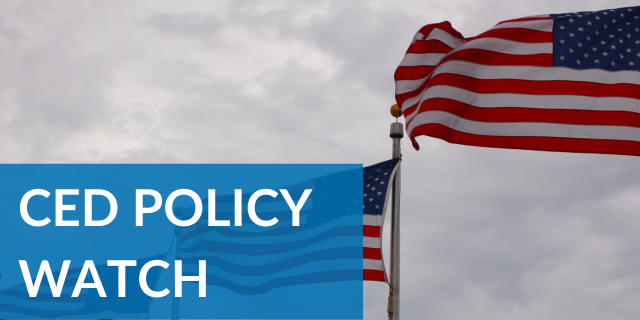After Citizens United: Improving Accountability in Political Finance

-
Publication Date:
September 26, 2011
The vitality of our democracy is being sapped by a rising tide of political spending and a pervasive emphasis on money in the political process. Our political system has taken on the character of a permanent campaign in which elected officials are engaged in a continual chase for campaign dollars and interest groups raise and spend increasingly large sums to gain policy influence. The result is a political environment in which electoral concerns are predominant in policy deliberations and the need for campaign money too often shapes policy actions. Such a system does not serve the best interests of the nation or the business community. Our nation faces a fiscal crisis. Government spending, driven by entitlement program expenditures, has produced long-term structural deficits that will continue unabated for years to come. The outlook for the federal budget is dismal. The nation is on a course of large and continuing budget deficits that will prove to be unsustainable. Even with a return to a robust economy, our nation’s accumulated debt is projected to outpace Gross Domestic Product. Deficits of such magnitude and depth will erode long-term investment, productivity growth, and prosperity. They will “crowd out” investment (both public and private), deplete national savings, and likely cause interest rates to rise. Further, they will act as a delayed tax increase on future workers, who will have to contend with the consequences of overwhelming debt. To stem this crisis, politically tough policy choices and major reforms, including reform of Social Security, Medicare, and other programs of government spending, are urgently needed. But such necessary actions are difficult—if not impossible—to achieve in the money culture that now exists on Capitol Hill. Elected officials spend increasing amounts of their time and energy raising money, which distracts them from the public’s business and enhances the opportunities for access and influence on the part of monied interests. Interest groups and other organizations with a stake in policy decisions are encouraged to spend more of their own resources in hopes of achieving their legislative preferences. Politicians who hope to be reelected in this environment are compelled to focus on the political consequences of their actions more than the soundness of the proposals before them when making policy decisions. And they are driven to raise more money. Moreover, as a result of changes in the ways election activities may be funded, the demand for political contributions from the business community is intensifying. The Supreme Court’s recent decision in Citizens United v. Federal Election Commission struck down the long-standing ban on the use of corporate treasury funds for campaign expenditures. It also in effect struck down the similar prohibition on the use of funds from labor union treasuries. This decision enhanced the value of corporate and labor union donations, since these funds may now be used to finance advertising that advocates the election or defeat of federal candidates. This has led to greater demand for corporate and labor union dollars from political groups and nonprofit organizations engaged in political activity. That many of these organizations may use unlimited and undisclosed contributions in pursuing their political objectives makes the quest for donations particularly acute. CED is deeply concerned about the changes taking place in political finance. Current practices promote a culture in which money is considered a requisite for political influence. They also undermine accountability, transparency and adherence to the rule of law, all of which diminishes essential safeguards against corruption and abuse in the political process. Furthermore, the use of corporate resources to promote a company’s objectives raises fundamental governance issues for public and private companies, as well as for nonprofit organizations, labor unions, and other entities involved in efforts to influence elections. In our view, reform initiatives are needed to address the problems that plague the system and manage the risks inherent in the changing environment of political finance.
-
Complimentary.







.png)




